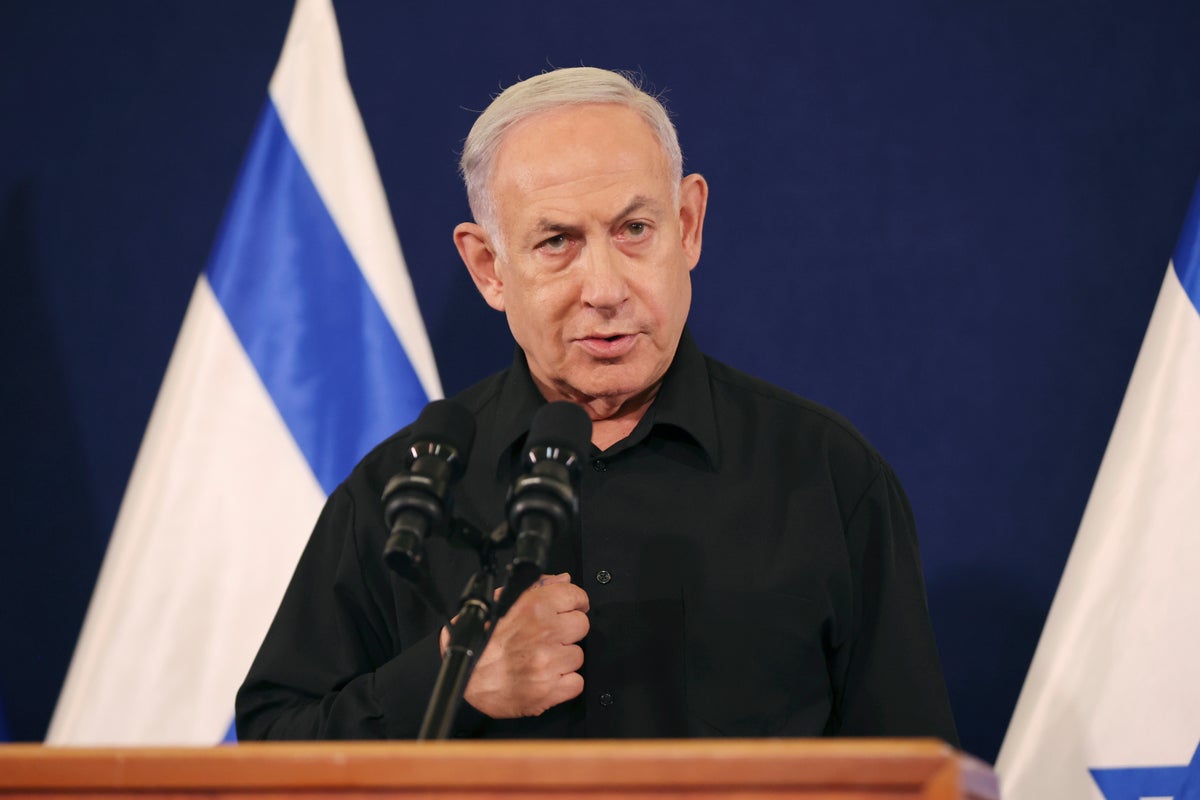
Israeli prime minister Benjamin Netanyahu says the “intense phase” of fighting against Hamas in Rafah city is about to end, but that this does not mean the war will be over soon.
Mr Netanyahu said the war would not be over until Hamas gave up control of the Palestinian enclave, but that dialling down the Israeli operation in Rafah would allow troops to be redeployed to the border with Lebanon.
"After the intense phase is finished, we will have the possibility to move part of the forces north. And we will do this," Mr Netanyahu said in a lengthy TV interview with Israel’s Channel 14.
The comments threaten to further heighten tensions between Israel and the Lebanese militant group Hezbollah.
Rejecting the idea that the West Bank’s Palestinian Authority be given power to run Gaza instead of Hamas, he said: “In the end, you will have to do two things: you will need the ongoing military demilitarisation by the Israel Defense Forces and you will need to establish a civil administration. I hope that with the support and management of certain countries in the region, I think this is the right way to move forward.
"I’ll tell you what I’m not ready to do, I’m not ready to establish a Palestinian state there, I’m not ready to hand it over to the Palestinian Authority. I’m not ready to do that.”
The Iranian-backed Hezbollah began striking Israel almost immediately after Hamas’s 7 October cross-border attack that killed some 1,200 people and saw over 250 others taken hostage.
The Israeli offensive that followed has killed over 37,000 Palestinians, according to the Hamas-run health ministry in Gaza. The war has resulted in a humanitarian crisis in the region and both Hamas and IDF have been accused of committing war crimes by the UN.
Netanyahu recently hit back at comments from Israel’s military that destroying Hamas is an unattainable goal as rifts between the government and its armed forces widened.
Mr Netanyahu said the military were “obligated” to follow his orders, one of which is the “destruction of Hamas’ military and governance capabilities”.
His comments followed an interview on Israeli Channel 13 with Rear Adm Daniel Hagari, a spokesperson for the military, during which the soldier suggested that to say they were capable of destroying Hamas was akin to “throwing sand in people’s eyes”.
White House envoy Amos Hochstein was in the region last week meeting with officials in Israel and Lebanon in an effort to lower tensions. But the fighting has continued.
Mr Netanyahu said he hoped a diplomatic solution to the crisis with Lebanon could be found but vowed to solve the problem "in a different way" if needed. "We can fight on several fronts and we are prepared to do that," he said.
He said any deal would not just be "an agreement on paper” and would require Hezbollah to be far from the border, an enforcement mechanism and the return of Israelis back to their homes.
Tens of thousands of people were evacuated shortly after the fighting erupted and have not been able to go home.
Hezbollah has said it will continue battling Israel until a ceasefire is reached in Gaza. The group’s leader, Hassan Nasrallah, warned Israel last week against launching another war, saying Hezbollah has new weapons and intelligence capabilities that could help it target more critical positions deeper inside Israel.
Earlier on Sunday, a senior US military officer warned that any Israeli military offensive into Lebanon would risk an Iranian response in defense of the Hezbollah, triggering a broader war that could put US forces in the region in danger.
Air Force General CQ Brown, chairman of the Joint Chiefs of Staff, said Iran "would be more inclined to support Hezbollah". He added that Tehran supports Hamas militants in Gaza, but would give greater backing to Hezbollah "particularly if they felt that Hezbollah was being significantly threatened”.
Brown also said the US won’t likely be able to help Israel defend itself against a broader Hezbollah war as well as it helped Israel fight off an Iranian barrage of missiles and drones in April.
Additional reporting by agencies







